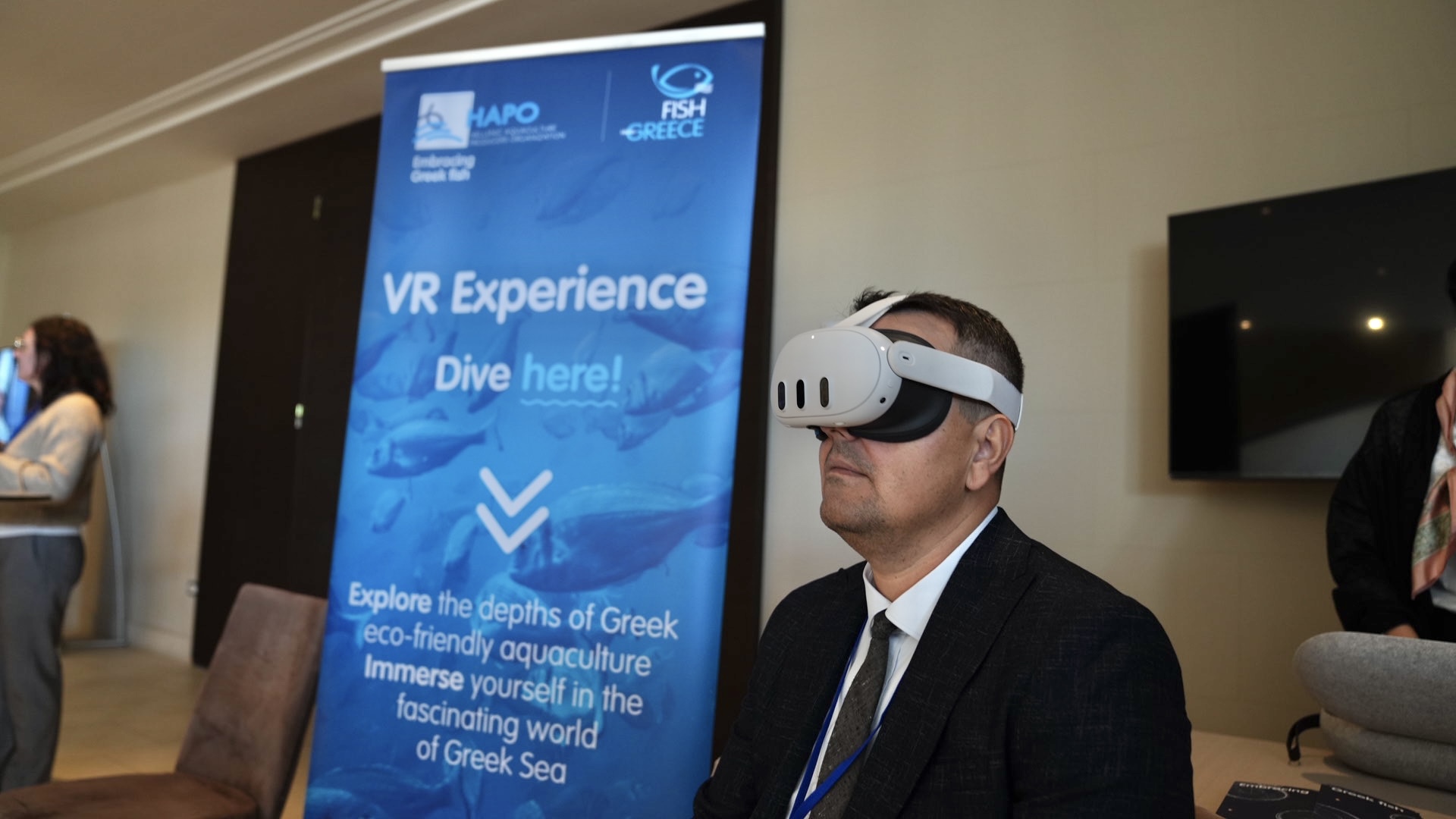Shaping the Future of Aquaculture in the Mediterranean and Black Sea Region – The Regional Aquaculture Conference was announced for the Mediterranean and Black Sea. The event, which took place from December 4 to 5, 2024, brought together aquaculture experts, industry stakeholders, and country representatives to address the region’s emerging challenges and priorities.
Representatives from over 30 countries convened in Heraklion, Greece, for the region’s largest aquaculture conference, titled “Shaping the Future of Aquaculture in the Mediterranean and Black Sea Region.” The two-day event, organized by the General Fisheries Commission for the Mediterranean (GFCM) of the Food and Agriculture Organization (FAO) and the Government of Greece, with financial support from the European Union, marked a pivotal moment for the sustainable growth of the sector.
A Decade of Transformation
The conference provided an opportunity to assess the strides made since the inaugural regional aquaculture meeting in Bari, Italy, ten years ago. Over the past decade, marine and brackish water aquaculture production has surged by 91.3%, with revenues increasing by 74.5%. This growth underscores aquaculture’s rising importance for food security, employment, and economic development in the Mediterranean and Black Sea region.
Key achievements included expanding allocated aquaculture zones from 30% to 73% and enhancing environmental monitoring programs from 23% to 60%. Additionally, Aquaculture Demonstration Centres established in Egypt, Romania, Tunisia, and Türkiye have educated thousands, with a new center planned for Bulgaria in 2025.
Side Events
Side events complemented the thematic session discussions and featured various salient issues, including the use of artificial intelligence in the sector, the creation of networks, and the promotion of women in aquaculture and small-scale production. The conference also hosted live demonstrations and stands showcasing emerging technology and the work of relevant aquaculture organizations.
A Shared Vision for the Future
Participants at the conference addressed challenges such as climate change, pollution, biodiversity degradation, and economic instability. The event brought together policymakers, aquaculture experts, researchers, NGOs, farmer associations, and small-scale farmers, highlighting the importance of collaboration. Notably, the conference celebrated the launch of the Network of Women in Aquaculture, aimed at empowering women in the sector.
Miguel Bernal, Executive Secretary of the GFCM, emphasized the importance of collective action, he said
“The strong representation of the regional aquaculture community at the conference is an important step towards the sustainable development of the sector. Our approach, at the GFCM, encompasses all dimensions of sustainability, from governance and social aspects to environmental stewardship and economic growth. Our countries have a shared vision for the future, deeply rooted in their common goals and aspirations, but also aligned with the realities aquaculture farmers face every day”.
Five priorities for sustainable aquaculture by 2030
Enhancing food security remains a priority, reaffirming aquaculture’s role in providing accessible, affordable and nutritious food to meet a growing global demand, while supporting local economies and reducing reliance on imports.
At the same time, promoting ecosystem-based growth is crucial to support aquaculture practices that integrate ecosystem approaches, towards ensuring social and environmental resilience, while enhancing biodiversity and restoring marine ecosystems.
Additionally, strengthening governance and stakeholder collaboration is essential to enhance the harmonization of regulatory frameworks with global standards and actively involve stakeholders, including small-scale producers and local communities, in order to foster equitable decision-making and cross-border cooperation. The adoption of innovative practices, such as climate-adapted species, integrated multitrophic aquaculture and advanced systems to address climate change impacts and ensure long-term sustainability, is also an important driver to further promote climate resilience and innovation.
Finally, ensuring social responsibility and inclusiveness is critical to empowering local communities, prioritizing gender equity, improving worker welfare, and promoting youth participation to create a more inclusive and socially responsible aquaculture sector.
The outcomes of the conference will inform national and regional strategies for sustainable aquaculture development. These efforts align with the GFCM 2030 Strategy and global initiatives like the 2025 United Nations Ocean Conference and the next MedFish4Ever Declaration.
As the Mediterranean and Black Sea region navigates the future, this collective commitment to innovation, sustainability, and inclusiveness will play a pivotal role in shaping a resilient and thriving aquaculture sector.
Shaping the Future of Aquaculture in the Mediterranean and Black Sea Region










